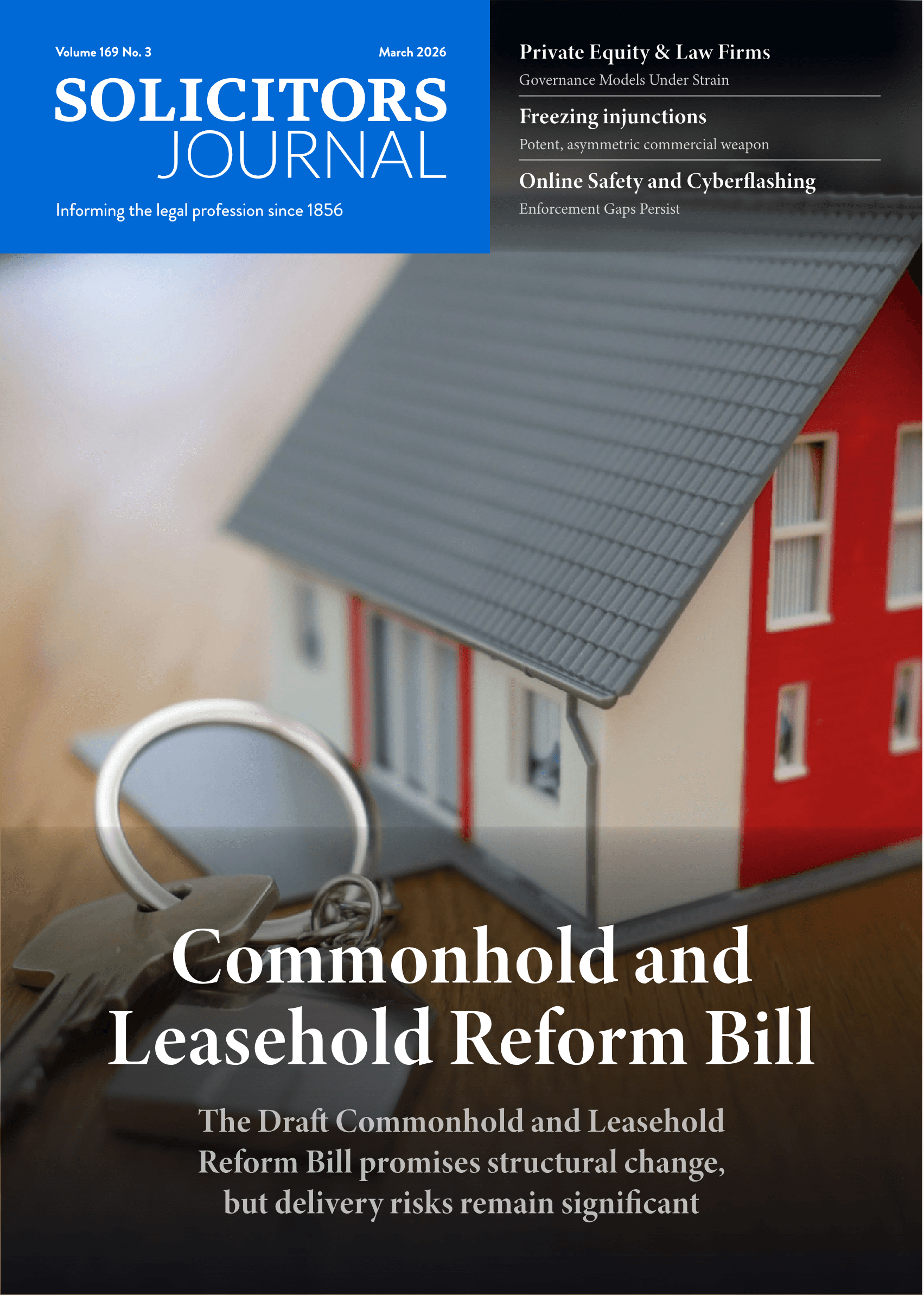How a Tasmanian court applied a UK ruling on future care costs

A landmark case could set the precedent for UK citizens claiming overseas, explains Peter Rigby
A landmark case could set the precedent for UK citizens claiming overseas, explains Peter Rigby
On 18 July 2016, the Supreme Court of Tasmania applied the Court of Appeal decision in Peters v East Midlands Strategic Health Authority [2009] 3 WLR 737 to its assessment of future care costs, helping to resolve a long running issue of a claimant's right to pursue a defendant for the costs of future care, even if those costs could be reasonably obtained from publically-funded support (e.g. statutory funding or NHS/Local Authority care).
The judgment of Raper v Bowden [2016] TASSC 35 took place to determine the quantum of damages for Holly Raper, a 24-year-old British backpacker, who was involved in a life-changing accident while working on a dairy farm on King Island, Australia, during her gap year in December 2011.
Holly suffered serious head and facial injuries after falling from a quad bike while herding cattle, and since the accident she has been in a minimally conscious state. Her travel insurance policy didn't cover her repatriation, care, and treatment because it excluded what it classed as 'heavy manual work' and the use of a quad bike as an extreme sport, despite it being used in the course of her employment. A Tasmanian state scheme insurer therefore funded her repatriation to the UK so she could receive care at the Royal Preston Hospital in Lancashire until April 2013.
Holly, who is still in a minimally conscious condition, does not have functional movement in any of her limbs. She is confined to her bed and wheelchair, is unable to communicate, except with her eyes, and requires 24 hour attendant care at her home. Before the judgment she had not yet received sufficient treatment intervention to give her the potential to show the full extent of her ability to communicate.
The judgment, which took place in Australia, found that the defendants were liable to pay damages to Ms Raper for their negligence and breach of common law and statutory duties, which included not providing her with proper quad bike training and a safety helmet.
However, to calculate the quantum of damages, the consideration had some unusual aspects given that Holly is a British citizen, is residing in Britain, and is subject to UK legislation, such as the Health and Social Care (Community Health and Standards) Act 2003 (UK) and the Social Security (Recovery of Benefits) Act 1997. There were also considerations around how the care is provided in the UK.
In the judgment, Judge Stephen Estcourt ruled that the decision in Peters v East Midlands SHA should apply. He noted that privately funded care would have significant advantages over publically funded care for the claimant. He also noted that the claimant's parents had already showed a clear preference and commitment to providing privately funded care for their daughter.
The judge stated that it was beyond argument that the availability of NHS benefits is not to be brought into account in diminution of the claimant's damages for future care. Holly's mother gave evidence that the claimant will fund future care from 'the verdict' if there were sufficient funds available, so they could avoid using the NHS. The judge found it was reasonable for Ms Raper's litigation guardian and deputies to opt for privately funded care instead of relying on the NHS, as the NHS regime was not adequate to meet all of Holly's needs.
Estcourt acknowledged that a claimant in a personal injuries action has the unfettered right to 'self-fund' in preference to reliance on the statutory obligations of a public authority, as expressly acknowledged in the Peters v East Midlands SHA case.
However, on the issue of mitigating loss for areas such as medical equipment and medication, the court ruled that the claimants were under a duty to use the publically funded support to which they are entitled. This meant that the claim for items covered by prescriptions failed and there was also a significant reduction to future transport claims, where they were covered by the Motability scheme in the UK.
Taking all of this into account, the Raper family were awarded £6,970,426.00 to meet the lifelong needs of Holly including adapted accommodation, transport, professional treatment, and ongoing therapy and care.
As a result, this ruling could act as a persuasive precedent for future judgments applied by an overseas court to a case involving a UK citizen, as it clearly sets out that this is the correct way for quantum to be assessed for injured parties resident in England and Wales, even when their accident occurred outside the jurisdiction, where the facts fit the Peters precedent.
Peter Rigby is a senior fee earner at Fletchers Solicitors and represented the claimant in the UK in respect of the quantum of damages @FletchersLegal

